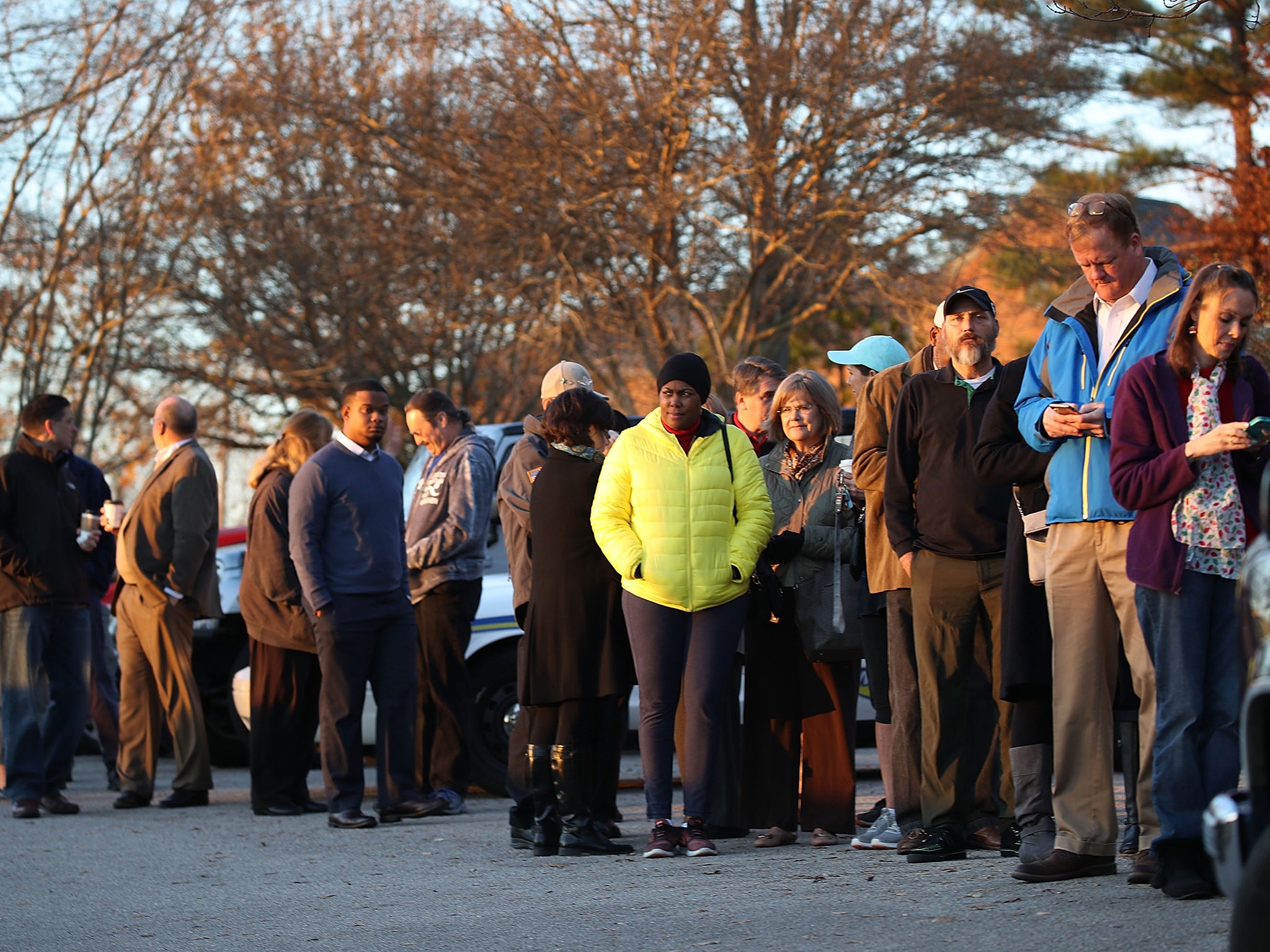Alabama’s congressional district maps discriminate against Black voters, federal judges rule
Ruling could set up Supreme Court fight over racial gerrymandering during contentious redistricting cycle
Your support helps us to tell the story
From reproductive rights to climate change to Big Tech, The Independent is on the ground when the story is developing. Whether it's investigating the financials of Elon Musk's pro-Trump PAC or producing our latest documentary, 'The A Word', which shines a light on the American women fighting for reproductive rights, we know how important it is to parse out the facts from the messaging.
At such a critical moment in US history, we need reporters on the ground. Your donation allows us to keep sending journalists to speak to both sides of the story.
The Independent is trusted by Americans across the entire political spectrum. And unlike many other quality news outlets, we choose not to lock Americans out of our reporting and analysis with paywalls. We believe quality journalism should be available to everyone, paid for by those who can afford it.
Your support makes all the difference.Alabama’s Republican-dominated state legislature must immediately redraw the state’s congressional map after discriminating against Black voters by approving a map that significantly dilutes their political power, a panel of federal judges has ruled.
A ruling in US District Court on 24 January ordered the legislature to create at least two – rather than just one – districts in which Black voters are more likely to be able to elect a representative that more closely resembles the state’s demographics.
“Black voters have less opportunity than other [Alabama residents] to elect candidates of their choice to Congress,” the judges wrote. “Any remedial plan will need to include two districts in which Black voters either comprise a voting-age majority or something quite close to it.”
The judges said that an “appropriate remedy is a congressional redistricting plan that includes either an additional majority-Black congressional district, or an additional district in which Black voters otherwise have an opportunity to elect a representative of their choice.”
The crucial decision – which is likely to be appealed, potentially igniting another US Supreme Court battle over racial gerrymandering – comes in the middle of a contentious nationwide redistricting cycle, the once-a-decade process of redrafting the nation’s political boundaries based on US Census results.
But states are now, for the first time in decades, drafting those maps without critical protections from the Voting Rights Act, after the Supreme Court invalidated a requirement that changes to voting rules from states with histories of discrimination be approved by the US Department of Justice.
Alabama’s Republican Attorney General Steve Marshall has pledged to appeal the decision.
The ruling follows a lawsuit filed on behalf of Greater Birmingham Ministries, Alabama State Conference of the NAACP, and a group of voters represented by the American Civil Liberties Union and NAACP Legal Defense and Educational Fund, among others.

A group of Black voters filed a similar lawsuit in 2018 and lost. Meanwhile, similar lawsuits against new congressional maps are pending in Texas and North Carolina.
Roughly 27 per cent of Alabama’s population is Black, though Black residents represent one of seven of the state’s congressional districts.
The state’s sole majority Black district – currently represented by Democratic US Rep Terri Sewell – has a voting population that is 60 per cent Black, roughly one-third of the state’s Black population. The state’s remaining Black population is “cracked” across the First, Second and Third congressional districts – all represented by Republicans.
Tish Gotell, legal director of the ACLU of Alabama, said that it is “past time for Alabama to move beyond its sordid history of racial discrimination at the polls, and to listen to and be responsive to the needs and concerns of voters of color.”
“Not ensuring access to the ballot for all of the people and communities in Alabama is holding this state back from realizing its full potential,” she said.
Former US Attorney General Eric Holder, who now chairs the National Democratic Redistricting Committee, said that the new map’s “dilution of the voting power of Alabama’s Black community – through the creation of just one majority-Black district while splitting other Black voters apart – was as evident as it was reprehensible.”





Join our commenting forum
Join thought-provoking conversations, follow other Independent readers and see their replies
Comments